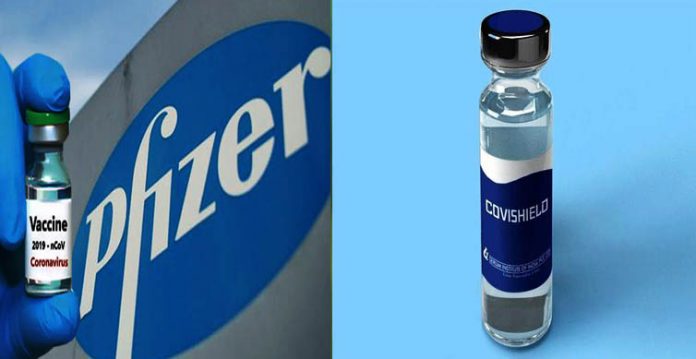As per the study conducted by the University College London (UCL), antibodies developed after full vaccination with Pfizer and AstraZeneca vaccine will begin diminishing in 6 weeks.
Moreover, over 59 percent reduction in these antibodies can be seen 10 weeks following the inoculation, the study found.
These findings were part of the ph lushes research in the Lancet journal. Its authors warned that waning of the antibodies at this rate could mean inefficiency of the vaccines to protect the individual from the virus, more so from its mutant variants taking the dominance.
There isn’t any evidence as to when this can start occurring and will be experienced by people.
ALSO READ: Test Covid Shots in More Children, FDA Tells Pfizer, Moderna
During the study of the UCL Virus Watch, researchers found Pfizer to be more effective than AstraZeneca’s vaccine. Two doses of Pfizer vaccine produced more antibodies than two shots of Covishield (the Indian variant of AstraZeneca’s candidate).
Completely inoculated people had developed more antibodies than those who had recovered from a previous coronavirus infection, they added.
UCL Institute of Health Informatics’ Madhumita Shrotri said
“The levels of antibody following both doses of either the AstraZeneca or Pfizer vaccine were initially very high, which is likely to be an important part of why they are so protective against severe COVID-19.” Yet, these reduced drastically within 2-3 months, she said.
The study was conducted with more than 600 people who were 18 years old and above. The findings showed a consistency in the results in all demographics.
Though the clinical results of the fading of the antibody levels isn’t precise, there is sufficient evidence to support that there will be some amount of reduction. However, it proved that vaccines still have the efficacy of protecting against severe infection.
Antibody levels after Pfizer declined from a median of 7506 Units per millilitre (U/mL) at 21–41 days, to 3320 U/mL at 70 or more days. While those in AstraZeneca reduced from a median of 1201 U/mL at 0–20 days to 190 U/mL at 70 or more day, more than 5 times reduction when compared to the former.
Speaking about booster doses, Professor Rob Aldridge of the UCL Institute of Health Informatics said, “When we are thinking about who should be prioritised for booster doses our data suggests that those vaccinated earliest, particularly with the AstraZeneca vaccine, are likely to now have the lowest antibody levels.”
ALSO READ: US purchased extra 200 million doses of Covid jab: Pfizer
Adults aged 70 and above and those caring for the elderly in special homes should be given the booster doses first, the study said.
“This may also need to be considered when deciding who should be prioritised when boosters are rolled out,” Mr Aldridge stated.
However, the researchers said it isn’t clear how quickly the antibodies would decline in an individual. Consistency of these drops is also not certain, they said, adding that more research is needed to find if it will reach a stable level in the coming months.
“Even when measurable antibody levels are low, there is likely to be continuing immune memory that could offer long-term protection,” they concluded.


